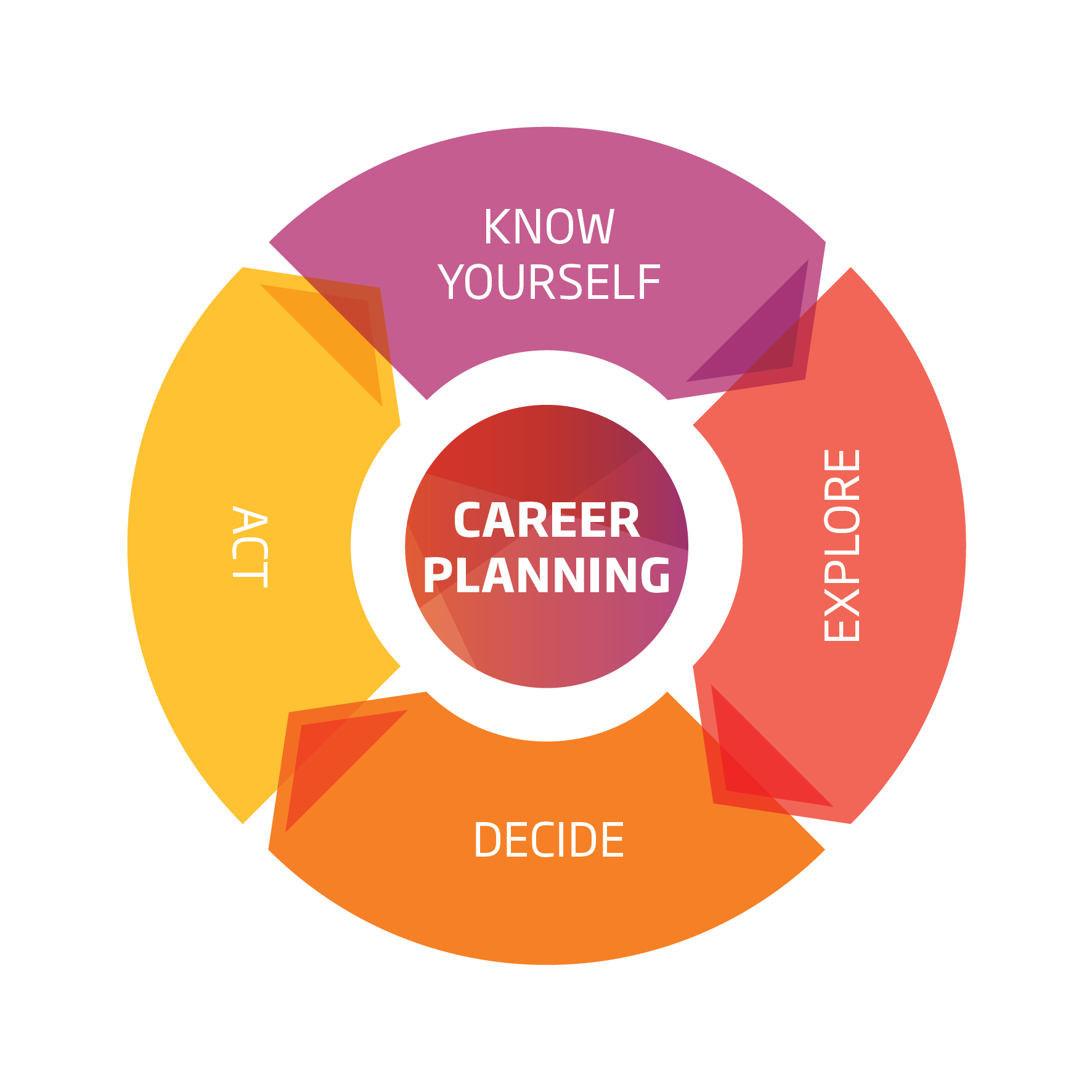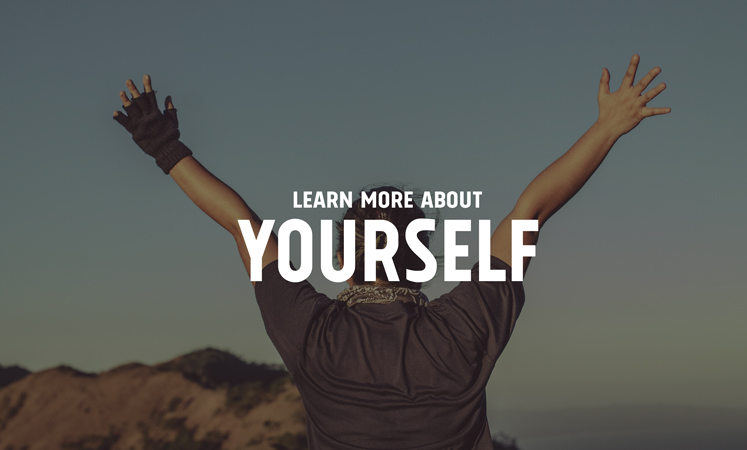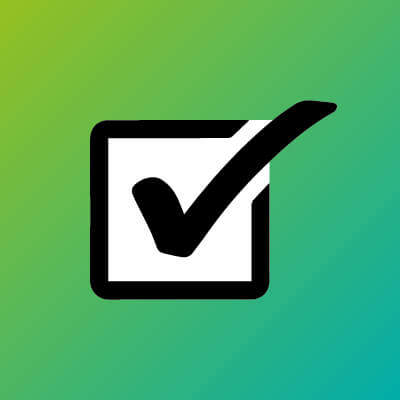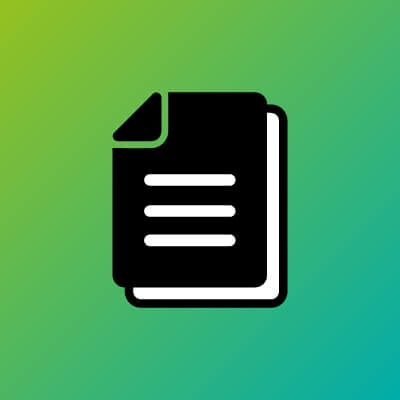Not sure how to start planning your career?
We can help with that. Click on the picture that best describes what you would like to know:
What is career planning?

Career planning is the life long process of thinking about your work and life, not only to be considered as you leave school. The working world is constantly changing and evolving and we need to adapt to these changes.
Developing an effective plan for your career is a bit like completing a jigsaw puzzle, the more pieces of the puzzle you complete, the clearer the final picture becomes.
We’ve divided our career planning resources into four areas, they are designed for you depending on where you are at in your decision making.
You may notice these icons as you work through our pages. They are designed so you can easily identify how to utilise each resource.
Know Yourself
Understanding who you are, those things that are important to you, what motivates and drives you, can help you make the best career decisions. Knowledge of self is the anchor for your decision making. Spending time on this is crucial to uncovering worthwhile careers. We've created and gathered resources to help you focus on your:
Skills
Skills are the ability to do something well and can be developed through study, work and other areas of our lives. Some skills are transferable from one role to another, others are specific to a particular role.
Preferred Work Contexts
Identifying the characteristics of work arrangements and environments that are important to you will help you make informed decisions about your preference.
Values
These are the things that are important and give meaning to life. Work that aligns with one's values is a key part of ensuring a good career fit.
Interests
When you perform tasks that they find interesting, work becomes more fulfilling and enjoyable.
Personality Assessments
Knowing your personality traits is an important part of self knowledge. There are a number of personality assessments available as part of our 1:1 appointment service.
Strengths, Weaknesses, Opportunities and Threats (SWOT)
Gather your thoughts and findings utilising a SWOT (Strengths, Weaknesses, Opportunities, Threats) framework to help develop your action plan.
Explore
Understanding the world of work and study, where opportunities exist and what is happening with the employment landscape is important to explore "best fit" opportunities. What type of jobs match up with your skills and interests? Where are the jobs and what are their conditions? What training or qualifications will you need?
In addition to online research there are a number of ways to find out more about what is going on in the world of work.
Informational Interviewing and Job Shadowing
It's important to ensure that your idea of a job matches reality. Informational interviewing and job shadowing are about reality checking, speaking with and observing those already working in an industry, job or organisation. Could you envisage yourself in this role?
This platform is a great way to build a professional network and find out more about job options. LinkedIn connections should be meaningful and requests should be accompanied with a short message.
Volunteering
Volunteering for community organisations is a great way to explore work options and environments as well as building transferable skills.
Resources to help you explore
We’ve created a list of terms commonly used at Unitec for those who are new to tertiary education
Decide
Reflecting on insights about yourself, connecting this to what you have learned about the world of work enables you to start formulating a plan. Use these resources to organise your action plan.
Joining the Dots
An ideal career decision matches the conclusions and insights you've gathered from your self exploration with your understanding of opportunities in the world of work. Use the joining the dots template to record the information you've gathered from Know Yourself and Explore resources.
SMART Goals
There is a big difference between an intention and a goal. An intention tells you the direction that you want to head, whereas a goal turns this into something tangible that you can aim at- and most importantly, know when you've achieve it. SMART is an acronym to guide development of meaningful goals, providing a framework for your efforts. SMART stands for Specific, Measurable, Achievable, Relevant, Timely.
Act
Now that you've got a plan, it's time to put it into action. Click on the links below to download resources designed to help you fulfill your plan.
Your personal brand
This activity will help you to understand what you have to offer an employer and how to stand out from other applicants when communicating with employers.
Networking
Statistics say that only 20-30% of all jobs are advertised. Networking is an excellent way to access the other 70-80% of job opportunities. These guidelines provide tips on how to engage with potential employers and extend your network.
Improve your Networking Skills
A LinkedIn profile is a great way to build a professional network. Check out these resources for students and graduates.
CV and Cover Letters
There is no one way to create a perfect CV. It depends on many aspects such as the industry and role you are applying for. Check out these guidelines for more information about how to create a CV.
Every CV should be accompanied by a tailored Covering Letter. Check out these guidelines to help create a role- specific Covering Letter for your application.
How to write effective Cover Letters
It’s only natural to feel nervous before an interview! Preparation and practice are key. Check out these guidelines for more information to increase your confidence.
Transitioning from Graduate to Employee for the first time can be both exciting and daunting. This guide provides some helpful tips on how to transition successfully.
As we all know the world of work is constantly changing. Will your job exist in five years’ time? How will technology impact it? This Youtube clip provides some tips on how to future proof your career.
9 Ways to future proof your career
Enrol at Unitec now Search Jobs Know your employment rights here







